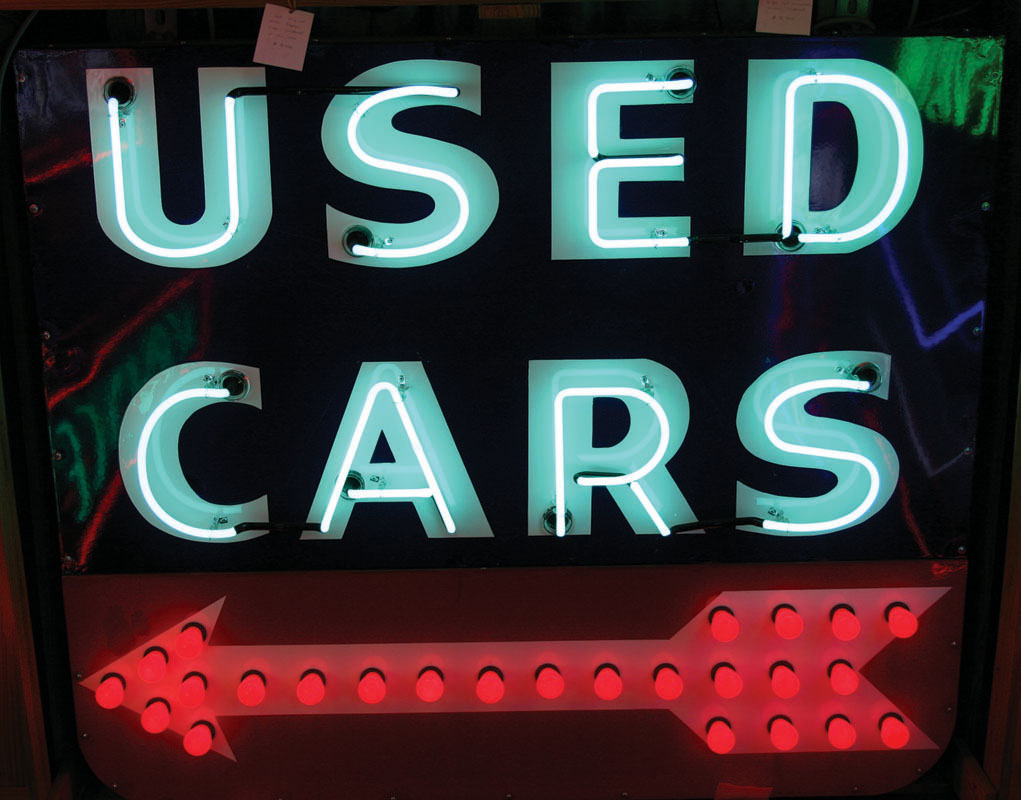1.3 45The Economics of Information

WHAT YOU WILL LEARN
 The special problems posed by private information—
The special problems posed by private information—situations in which some people know things that other people do not  How situations of private information can lead to the problem of adverse selection
How situations of private information can lead to the problem of adverse selection
 How firms deal with the need for information by using screening and signaling
How firms deal with the need for information by using screening and signaling
 How situations of private information can lead to the problem of moral hazard
How situations of private information can lead to the problem of moral hazard
Private Information: What You Don’t Know Can Hurt You
Private information is information that some people have that others do not.
Markets do very well at dealing with situations in which nobody knows what is going to happen. However, markets have much more trouble with situations in which some people know things that other people don’t know—situations of private information. (Sometimes economists use the term asymmetric information rather than private information, but the terms are equivalent.) As we will see, private information can distort economic decisions and sometimes prevent mutually beneficial economic transactions from taking place.
Why is some information private? The most important reason is that people generally know more about themselves than other people do. For example, you know whether or not you are a careful driver; but unless you have already been in several accidents, your auto insurance company does not. You are more likely to have a better estimate than your health insurance company of whether or not you will need an expensive medical procedure. And if you are selling me your used car, you are more likely to be aware of any problems with it than I am.
But why should such differences in who knows what be a problem? It turns out that there are two distinct sources of trouble: adverse selection, which arises from having private information about the way things are, and moral hazard, which arises from having private information about what people do.
Adverse Selection: The Economics of Lemons
Suppose that someone offers to sell you an almost brand-
Probably not, for one main reason: you cannot help but wonder why this car is being sold. Is it because the owner has discovered that something is wrong with it—
You might think that the fact that sellers of used cars know more about them than buyers do represents an advantage to the sellers. But potential buyers know that potential sellers are likely to offer them lemons—
But potential sellers who have good cars are unwilling to sell them at a deep discount, except under exceptional circumstances. So good used cars are rarely offered for sale, and used cars that are offered for sale have a strong tendency to be lemons. (This is why people who have a compelling reason to sell a car, such as moving overseas, make a point of revealing that information to potential buyers—

The end result, then, is not only that used cars sell for low prices but also that there are a large number of used cars with hidden problems. Equally important, many potentially beneficial transactions—
Adverse selection occurs when one person knows more about the way things are than other people do. Adverse selection exists, for example, when sellers offer items of particularly low (hidden) quality for sale, and when the people with the greatest need for insurance are those most likely to purchase it.
Although economists sometimes refer to situations like this as the “lemons problem” (the issue was introduced in a famous 1970 paper by economist and Nobel laureate George Akerlof entitled “The Market for Lemons”), the more formal name of the problem is adverse selection. The reason for the name is obvious: because the potential sellers know more about the quality of what they are selling than the potential buyers, they have an incentive to select the worst things to sell.
Adverse selection does not apply only to used cars. It is a problem for many parts of the economy—
Suppose that a health insurance company were to offer a standard policy to everyone with the same premium. The premium would reflect the average risk of incurring a medical expense. But that would make the policy look very expensive to healthy people, who know that they are less likely than the average person to incur medical expenses. So healthy people would be less likely than less healthy people to buy the policy, leaving the health insurance company with exactly the customers it doesn’t want: people with a higher-
In order to cover its expected losses from this sicker customer pool, the health insurance company is compelled to raise premiums, driving away more of the remaining healthier customers, and so on. Because the insurance company can’t determine who is healthy and who is not, it must charge everyone the same premium, thereby discouraging healthy people from purchasing policies and encouraging unhealthy people to buy policies.
Adverse selection can lead to a phenomenon called an adverse selection death spiral as the market for health insurance collapses: insurance companies refuse to offer policies because there is no premium at which the company can cover its losses. Because of the severe adverse selection problems, governments in many advanced countries assume the role of providing health insurance to their citizens. The U.S. government, through its various health insurance programs including Medicare, Medicaid, and the State Children’s Health Insurance Program (SCHIP), now disburses more than half the total payments for medical care in the United States.
People or firms faced with the problem of adverse selection have three wellestablished strategies for dealing with it: screening, signaling, and establishing a good reputation.
Adverse selection can be reduced through screening: using observable information about people to make inferences about their private information.
Adverse selection can be diminished by people signaling their private information through actions that credibly reveal what they know.
A long-
ScreeningThe first strategy, screening, involves using observable information to make inferences about private information. If you apply to purchase health insurance, you’ll find that the insurance company will demand documentation of your health status in an attempt to “screen out” sicker applicants, whom they will refuse to insure or will insure only at very high premiums.
Auto insurance also provides a very good example. An insurance company may not know whether you are a careful driver, but it has statistical data on the accident rates of people who resemble your profile—

SignalingThe second strategy is for people who are good prospects to somehow signal their private information. Signaling involves taking some action that wouldn’t be worth taking unless they were indeed good prospects. Reputable used-
ReputationIn the face of adverse selection, it can be very valuable to establish a good reputation, our third strategy. A used-
Moral Hazard
In the late 1970s, New York and other major cities experienced an epidemic of suspicious fires—
Why burn your own buildings? These buildings were typically in declining neighborhoods, where rising crime and middle-
The arson epidemic became less severe during the 1980s, partly because insurance companies began making it difficult to over-
The arson episodes make it clear that it is a bad idea for insurance companies to let customers insure buildings for more than their value—
But, unfortunately, anything close to 100% insurance still distorts incentives—

Of course, the insurance company could specify in the policy that it won’t pay if basic safety precautions have not been taken. But it isn’t always easy to tell how careful a building’s owner has been—
Moral hazard occurs when an individual knows more about his or her own actions than other people do. This leads to a distortion of incentives to take care or to exert effort when someone else bears the costs of the lack of care or effort.
The point is that the building’s owner has private information about his or her own actions; the owner knows whether he or she has really taken all appropriate precautions. As a result, the insurance company is likely to face greater claims than if it were able to determine exactly how much effort a building owner exerts to prevent a loss. The problem of distorted incentives arises when an individual has private information about his or her own actions but someone else bears the costs of a lack of care or effort. This is known as moral hazard.
To deal with moral hazard, it is necessary to give individuals with private information some personal stake in what happens, a stake that gives them a reason to exert effort even if others cannot verify that they have done so. Moral hazard is the reason salespeople in many stores receive a commission on sales: it’s hard for managers to be sure how hard the salespeople are really working, and if they were paid only straight salary, they would not have an incentive to exert effort to make those sales. Similar logic explains why many stores and restaurants, even if they are part of national chains, are actually franchises, licensed outlets owned by the people who run them.
A deductible is a sum specified in an insurance policy that the insured individuals must pay before being compensated for a claim; deductibles reduce moral hazard.
Insurance companies deal with moral hazard by requiring a deductible: they compensate for losses only above a certain amount, so that coverage is always less than 100%. The insurance on your car, for example, may pay for repairs only after the first $500 in loss. This means that a careless driver who gets into a fender-
In addition to reducing moral hazard, deductibles provide a partial solution to the problem of adverse selection. Your insurance premium often drops substantially if you are willing to accept a large deductible. This is an attractive option to people who know they are low-
As the example of deductibles suggests, moral hazard limits the ability of the economy to allocate risks efficiently. You generally can’t get full (100%) insurance on your home or car, even though you would like to buy full insurance, and you bear the risk of large deductibles, even though you would prefer not to.
45
Solutions appear at the back of the book.
Check Your Understanding
1. Your car insurance premiums are lower if you have had no moving violations for several years. Explain how this feature tends to decrease the potential inefficiency caused by adverse selection.
2. A common feature of home construction contracts is that when it costs more to construct a building than was originally estimated, the contractor must absorb the additional cost. Explain how this feature reduces the problem of moral hazard but also forces the contractor to bear more risk than she would like.
3. True or false? Explain your answer, stating what concept analyzed in this module accounts for the feature.
People with higher deductibles on their auto insurance
-
a. generally drive more carefully.
True. Drivers with higher deductibles have more incentive to take care in their driving in order to avoid paying the deductible. This is a moral hazard phenomenon. -
b. pay lower premiums.
True. Suppose you know that you are a safe driver. You have a choice of a policy with a high premium but a low deductible or one with a lower premium but a higher deductible. In this case, you would be more inclined to choose the cheap policy with the high deductible because you know that you will be unlikely to have to pay the deductible. When there is adverse selection, insurance companies use screening devices such as this to infer private information about how careful people are as drivers.
Multiple-
Question
1. Which of the following is true about private information?
I. It has value.
II. Everyone has access to it.
III. It can distort economic decisions.
| A. |
| B. |
| C. |
| D. |
| E. |
Question
2. Due to adverse selection,
| A. |
| B. |
| C. |
| D. |
| E. |
Question
3. When colleges use grade point averages to make admissions decisions, they are employing which strategy?
| A. |
| B. |
| C. |
| D. |
| E. |
Question
4. Moral hazard is the result of
| A. |
| B. |
| C. |
| D. |
| E. |
Question
5. A deductible is used by insurance companies to
| A. |
| B. |
| C. |
| D. |
| E. |
Critical-
Individuals or corporations (for example home-
1. This is an example of what problem created by private information?
2. How does this situation lead to inefficiency?
3. What is a possible remedy for the problem?